Description
Organic Jojoba (Simmondsia chinensis) ~ Jojoba oil, actually, is not a regular carrier “oil.” However, it is used as a carrier “oil.” Rather, JOJOBA is a liquid wax ester much like the esters the human body produces in the skin and does not turn rancid like a true carrier oil. Fractionated Coconut Oil is an exception because the component that would cause it to go rancid has been removed. A carrier oil contains triglycerides which are fragile and oxide causing rancidity. Liquid Jojoba wax has an indefinite shelf life.
The fact that JOJOBA Wax has an indefinite shelf life was clearly demonstrated when archeologist Vendyl Jones found the SHeMeN HaTov (Good Anointing Oil) in 1988 in the Qumran Caves. The SHeMeN HaTov was found to be still good and not rancid. It was used to consecrate holy vessels in the Mishkan (Tabernacle), anoint the CoHeN HaGadol (High Priest), and King David in addition to kings of Davidic line for Israel. We must remember that the utmost care was taken to make sure the anointing oil was done properly and preserved so that it might be read and waiting to be used to ANOINT the COMING MESSIAH!
It was during the time of King Josiah (539 BCE) that the prophet Jeremiah directed him, in response to the prophetic DaBaR-Word of Elohim, to hide the original temple treasures and vessels 7 years prior to destruction and captivity. They were hidden in the Qumran Caves via an 18 mile tunnel from Jersualem. The main purpose of hiding the vessels was so that they would be ready for the 3rd Temple and the return of the Mashiach/Messiah.
The chemical analysis of the SHeMeN HaTov showed that it was made with Jojoba oil and was not rancid. In Avraham Sand’s book, MYSTICAL AROMATHERAPY, he states on page 83: “Although the Torah seems to stipulate the use of olive oil as the carrier, according to Dr. Jones the anointing oil was made by cooking the spices into Jojoba oil, not olive oil. In his opinion, Moses knew that only jojoba oil, which is native to Israel, would preserve the anointing oil for all time. . . In fact olive oil should not be used as a perfume carrier as it is prone to spoilage and rancidity, whereas jojoba oil has an unlimited shelf life and is a perfect carrier for the best perfumes.”
It’s believed that it makes sense to use olive oil as instructed in Torah (Exodus 30:24) when mixing and using the anointing oil on an ongoing basis when the Mishkan and/or Temple existed as it would be used regularly and the stock would be rotated which would avoid rancidity. However, the original batch of anointing oil made to be used to anoint and sanctify the vessels, priests and kings would be mixed with a carrier type oil or wax in order that it might used for all time and, ultimately, for the Messiah.
Uses: Pure organic Jojoba (Simmondsia chinensis) may look like any other oil but after application of organic jojoba to the skin, it becomes quickly apparent that you are working with something highly unique. Jojoba absorbs into the skin and leaves the skin feeling very soft and smooth, almost silky to the touch, and definitely not oily or greasy.
Jojoba is an emollient; it softens and conditions the skin, the scalp, and the hair. For skin care, it seems to make little sense to put oil onto the skin. Oils oxidize, releasing free radicals, which can actually promote aging. Pure jojoba, which does not oxidize, actually helps the skin maintain itself. Also, unlike oils, pure jojoba is non-allergenic and does not clog pores.
Some may use the term jojoba oil instead of jojoba wax but the terms are used to mean the same thing even though “oil” is a misnomer and in reality, there is no such thing as “jojoba oil”. I know, it looks like an oil, it walks like an oil, it quacks like an oil but is is NOT an oil. Jojoba is a WAX.
More Info: With jojoba, “less is better” and only a few drops of jojoba should be used at a time until you are fully familiar with the way it works on your skin. To try it out, just place a small drop of Jojoba on the back of your hand. Massage the jojoba was in. Notice that the jojoba spreads easily and absorbs readily. You want the jojoba to absorb because that is how it works best by softening and conditioning the skin.
Jojoba restores elasticity to any dry skin area while conditioning and softening the skin. For daily conditioning, apply jojoba was all over the body immediately after bathing. Apply it either while the skin is still wet, permitting the skin to air dry after application, or apply it after gently blotting the skin dry, while the skin is still moist. You can also apply jojoba only to problem areas like elbows, knees, calves, feet or other areas prone to dryness. Jojoba soothes and conditions sun or wind burned skin.
Jojoba is a “fixative”. While it has a mild, nutty scent of its own, it is totally vulnerable to the scent of its immediate environment. After jojoba has been in your skin for a minute or two, the scent will hardly be distinguishable your own. This characteristic makes jojoba an ideal carrier or base for essential oils and perfumes. Dilute your essential oils in jojoba before applying to skin, scalp and hair, or for massage.
Cold Pressed: Seed
Organic: USA, Argentina

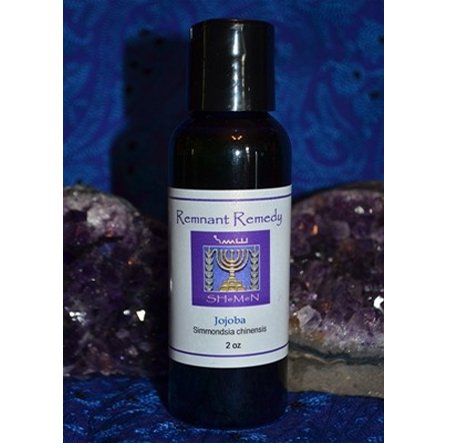
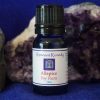
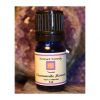
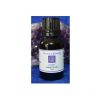
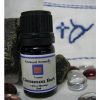
Reviews
There are no reviews yet.